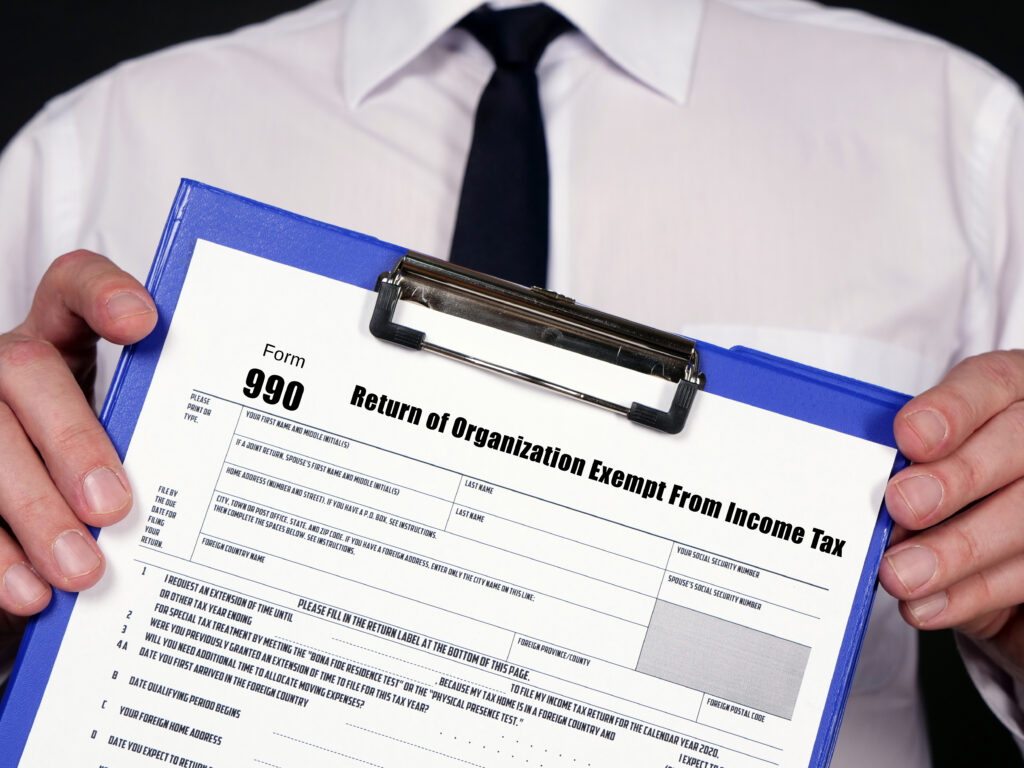How Nonprofit Boards Ensure Compliance and Accuracy
Filing Form 990 is one of the most critical compliance tasks for any nonprofit organization. This form provides the IRS, donors, and the public with crucial information about your nonprofit’s finances, governance, and activities. While the day-to-day management of financial records may fall to staff or external professionals, the board of directors plays an essential role in ensuring the accuracy and completeness of the Form 990. A proactive, informed board can help avoid costly mistakes and uphold the organization’s transparency and compliance.
In this post, we’ll dive into the board’s role in ensuring a flawless Form 990 and offer actionable tips on how to make the filing process smoother.
Why Is Form 990 So Important?
Form 990 serves multiple purposes:
- IRS Compliance: It’s a required annual report that allows the IRS to assess a nonprofit’s operations and ensure it’s complying with the rules for maintaining tax-exempt status.
- Transparency: It provides valuable information for donors, funders, and other stakeholders, showcasing the nonprofit’s financial health, governance practices, and accomplishments.
- Public Accountability: Since Form 990 is publicly accessible, nonprofits that file incomplete or incorrect forms can face reputational damage, which may affect donor trust and grant opportunities.
This makes it essential for nonprofit boards to actively participate in the process to ensure the accuracy and timeliness of the filing.
The Board’s Role in Filing a Flawless Form 990
1. Provide Oversight and Accountability
While nonprofit staff or accountants typically handle the preparation of Form 990, the board is responsible for overseeing the entire process. This includes reviewing the form thoroughly before submission to ensure it is accurate, complete, and consistent with the organization’s financial reports.
How to Get It Right:
- Regular Reviews: Schedule time for the board to review key financial statements and governance practices throughout the year, not just during tax season. This ensures that everyone is familiar with the organization’s finances before it’s time to file.
- Audit Committees: Many nonprofits establish an audit or finance committee that works closely with the accounting team to review financial reports and ensure that the 990 aligns with these records.
2. Ensure Transparency and Compliance
The IRS requires specific information on governance, such as details about board members, conflict of interest policies, and executive compensation. The board must ensure these governance disclosures are accurate and transparent to avoid any red flags during IRS reviews.
How to Get It Right:
- Update Policies: Ensure that your organization’s governance policies, such as conflict of interest or executive compensation policies, are regularly reviewed and updated. This makes the filing process easier and ensures that the Form 990 reflects current practices.
- Document Board Actions: Keep clear records of board meetings, decisions, and policies throughout the year. These records can be crucial when preparing Form 990 and demonstrating that the board is providing active governance.
3. Participate in Financial Planning and Review
Since Form 990 includes detailed financial information, the board plays a key role in providing financial oversight and reviewing the organization’s budget, expenses, and revenues.
How to Get It Right:
- Regular Financial Reporting: Boards should receive regular financial updates from the executive team or finance director. This helps ensure the numbers on Form 990 match the actual financial performance throughout the year.
- Ask Questions: Board members should ask questions about any financial figures that seem unclear or inconsistent. Active engagement and scrutiny during the review process can prevent errors that might raise red flags with the IRS or funders.
4. Stay Informed About Changes to IRS Requirements
The IRS regularly updates its requirements and the filing process for Form 990. Nonprofit boards must stay informed about these changes to ensure that the organization is in full compliance.
How to Get It Right:
- Ongoing Education: Invest in regular training and updates for the board on IRS requirements and changes to Form 990. Partner with nonprofit tax professionals who can advise on best practices.
- Consult Professionals: If your nonprofit’s financial activities are complex, consider hiring a nonprofit accounting firm or tax consultant who specializes in Form 990 to ensure compliance with all IRS requirements.
3 Major Tips for Ensuring a Flawless Form 990
1. Plan Ahead: Start the 990-preparation process early by keeping accurate, up-to-date records throughout the year. This ensures that the filing process is smooth and prevents last-minute stress.
2. Use the Expertise of a Finance Committee: If possible, form a finance or audit committee within the board that can provide specialized oversight of the organization’s financial management and compliance efforts.
3. Invest in Professional Guidance: Don’t hesitate to seek professional assistance if your organization’s finances are complex or if the board lacks experience in IRS reporting. Working with a nonprofit consultant or tax advisor can help ensure accuracy and compliance.
Conclusion
The board of directors plays a vital role in ensuring that a nonprofit’s Form 990 is accurate, timely, and transparent. By providing oversight, reviewing governance and financial details, and staying informed about IRS requirements, board members can protect the organization from compliance issues and reinforce its commitment to transparency. A well-managed 990 filing not only keeps your organization in good standing with the IRS but also strengthens your credibility with donors, funders, and the public.
Does your nonprofit need help with Form 990 filing?
At BryteBridge Nonprofit Solutions, we offer expert guidance to help your board and staff file accurate, compliant Form 990s. Contact a BryteBridge consultant today by calling 877-857-9002 for professional assistance, ensuring your nonprofit stays in good standing with the IRS and your stakeholders.



